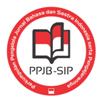Analysis of Phonological Acquisition and Children's Polite Speech in The Pre-Operational Period (3-4 Years)
DOI:
https://doi.org/10.15294/h64apa38Keywords:
children's language acquisition and politeness speech actsAbstract
Acquisition in toddlerhood is undoubtedly different. This is influenced by various factors such as environment, age, stimulation, and the maturity of the speech apparatus. Toddler language acquisition can be seen from the pronunciation of the words used. Children still cannot pronounce /s/or/r/, but some toddlers are already mastering it. In addition, at this age, some toddlers can convey messages pragmatically. Therefore, this study aims to describe children's phonological acquisition in the pre-operational period and children's politeness speech acts in the pre-operational period. This research is a descriptive qualitative research with a Psychopragmatic approach. The data source is pre-operational children or 3-4 years old. The data in this study are words, phrases, clauses, and sentences. Data collection is done by using the observation method with a note-taking technique. This method is realized by using advanced techniques like free listening techniques. This study showed that language acquisition in pre-operational children is in the form of sound changes /l/ to /n/ and /y/ and/s/ to /c/. The acquisition of pragmatics in children focuses on the types of politeness speech acts and the strategies used. The benefit of this study is to provide readers with an understanding that the phonological mastery of children aged 3-4 years is different and unique. In addition, children can reasonably convey speech acts

